EXTENDED PLAY: Drummers as leaders and composers
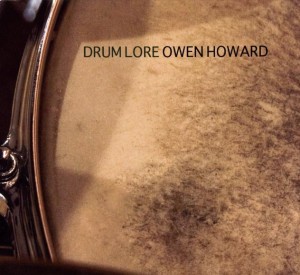
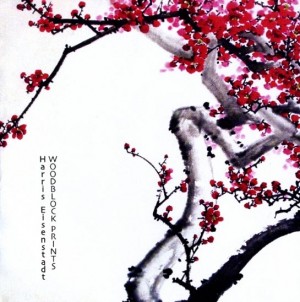
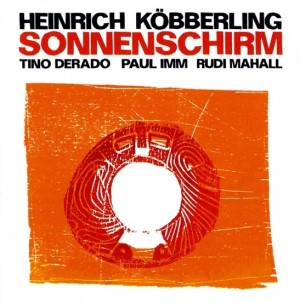
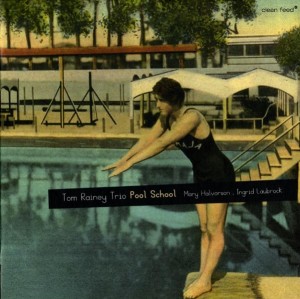
As these sessions prove, giving a sophisticated drummer freedom to innovate, results in much more than a rhythmic free-for-all.




As these sessions prove, giving a sophisticated drummer freedom to innovate, results in much more than a rhythmic free-for-all.
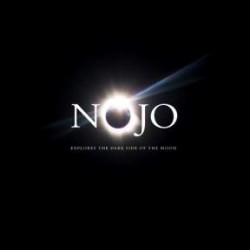 Explores The Dark Side Of The Moon
Explores The Dark Side Of The Moon
NOJO
True North Records TNE5032 (www.truenorthrecords.com)
NOJO, the enterprising Toronto-based improvising orchestra, tackles a classic in its latest efforts to examine the jazz potential of great rock tunes. They’re examining the work of groups like Led Zeppelin and Rush, but here, in their first digital only release, it’s a seminal album from 1973, Pink Floyd’s “The Dark Side Of The Moon”. That was one of the best-selling discs of all time, a concept album that used advanced technology of its era such as multi-track recording, plus sound effects, continuous music and songs satirizing contemporary English society. NOJO can’t supply the quartet’s vocals by Roger Waters, David Gilmour and Richard Wright (though drummer Barry Romberg is far better than the Pink’s Nick Mason), but it has taken nine of the 10 pieces on the original and made them work with new arrangements, excellent section work and some fierce soloing from its 16 musicians. There’s no information as to who solos, though co-leaders Michael Occhipinti and keyboardist Paul Neufeld are prominent, but the overall teamwork is exemplary, with pleasing melody amid the complex harmonies. Sometimes the sound’s so smooth that it echoes Duke Ellington, at others free jazz, circus music and reggae rhythms reign. Money, Us And Them and Breathe are best. Recorded before a live Lula Lounge audience, the show lasts 86 minutes, twice the length of the original album.
Bern, Brody & Rodach
Jazz Werkstatt JW 071 (www.recoprds-cd.com)
Putting your stamp on traditional material is one goal for musicians; composing tunes that fit with it is another. This trio excels in both.
Consisting of accordionist/pianist Alan Bern and trumpeter Paul Brody, respectively the musical director and one soloist of The Other Europeans – a Klezmer/Lautari band performing at the Ashkenaz festival September 4 – plus guitarist Michael Rodach, the three not only play Yiddish and Roma music, but create it. “Triophilia” is notable since the smaller group allows the three to celebrate more musical currents.
Take Rodach’s Tango Valeska. Positioning the Argentinean theme song within Eastern Europe, the three emphasize its Old Country roots by the means of expansive polyphonic slurs from the trumpeter, quivering accordion licks and the expected clinking guitar rhythms. It the same story with Bern’s Angel Blue and Brody’s Heschel. On the latter, sharp, downwards guitar strums that could have emigrated from Bessarabia come up against moderato, formalist trumpet cadenzas, creating a melody that is both melancholy and charming. On the former the rhythm is more sway than swing, but Bern’s expanded glissandi still contrapuntally play off against Brody’s grace note sluices and blues lick suggestions from Rodach.
Brody’s Bartoki, saluting the Hungarian composer whose study of his country’s musical history affected his compositions, is the crowning achievement. Putting a modernist cast on Magyar-Roma roots, jazzy, rhythmic guitar frails and harsh syncopated piano runs are added to Brody’s mellow theme. Emerging repeatedly from the mix of strained string fills and slinky keyboard rebounds, the narrative attains its climax with high-pitched trumpet tones.
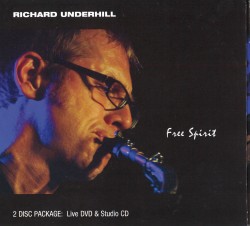 Here’s another winner from the Richard Underhill stable, a sure candidate for assorted end-of-year awards and, for once, a CD and DVD package that works. It’s a studio session so passionate you could believe it’s live, plus a DVD recorded at Lula Lounge last October that entertains for more than 90 minutes, plus a bonus segment containing the leader’s incisive jazz opinions. Make sure you experience Free Spirit (Stubby Records SRCD-7734 www.richardunderhill.com). The CD line-up’s interesting with Underhill’s alto and the trombone of Ron Westray, late of the Lincoln Center Orchestra and now at York. Their companions are pianist Dave Restivo, who plays with marked intensity, plus hardworking bassist Artie Roth and all-action drummer Larnell Lewis. All nine tunes are by Underhill, whose snarling horn sound on This House and Hustle Up might raise your neck hairs. Westray’s speed is remarkable and skittish, both horns swinging hard, dabbling in exhilarating free jazz outbursts. Great inventions are the clever Positive Spin and the anthemic Be Strong, Be Strong. The DVD session allows more solo room and also brings in edgy, rock-influenced guitarist Eric St. Laurent and for three tunes djembe (hand drum) exponent Michel DeQuevedo. Consistently sharp and engaging, the groove’s ever-present with delightful forays on Blakey’s Bounce and Bike Lane. This is challenging, complex and robust music, ranging from lyrical to incendiary, yet still communicating with pleasing ease.
Here’s another winner from the Richard Underhill stable, a sure candidate for assorted end-of-year awards and, for once, a CD and DVD package that works. It’s a studio session so passionate you could believe it’s live, plus a DVD recorded at Lula Lounge last October that entertains for more than 90 minutes, plus a bonus segment containing the leader’s incisive jazz opinions. Make sure you experience Free Spirit (Stubby Records SRCD-7734 www.richardunderhill.com). The CD line-up’s interesting with Underhill’s alto and the trombone of Ron Westray, late of the Lincoln Center Orchestra and now at York. Their companions are pianist Dave Restivo, who plays with marked intensity, plus hardworking bassist Artie Roth and all-action drummer Larnell Lewis. All nine tunes are by Underhill, whose snarling horn sound on This House and Hustle Up might raise your neck hairs. Westray’s speed is remarkable and skittish, both horns swinging hard, dabbling in exhilarating free jazz outbursts. Great inventions are the clever Positive Spin and the anthemic Be Strong, Be Strong. The DVD session allows more solo room and also brings in edgy, rock-influenced guitarist Eric St. Laurent and for three tunes djembe (hand drum) exponent Michel DeQuevedo. Consistently sharp and engaging, the groove’s ever-present with delightful forays on Blakey’s Bounce and Bike Lane. This is challenging, complex and robust music, ranging from lyrical to incendiary, yet still communicating with pleasing ease.
Concert Note: Underhill performs at the Southside Shuffle in Port Credit on Sept. 11.
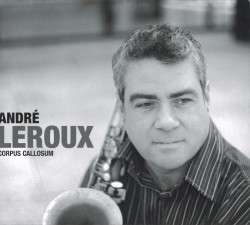 Quebec jazzman André Leroux is known primarily for his solid tenor sax but on Corpus Callosum (Effendi FND089 www.effendirecords.com) he’s into soprano, flute and bass clarinet, performing with long-term associates Normand Deveault (piano), Frederic Alarie (bass) and Christian Lajoie (drums on eight cuts). Astonishingly it’s Leroux’s first album as leader but clearly he’s comfortable directing musical traffic in what he calls “a group therapy session” recreating the spirit of Coltrane through his band’s own compositions. This he does with warm tones and technical aplomb, kicking off with earnest tenor and outside playing on Speed Machine followed by penetrating, fluent soprano on the stern Sa Ka Vin, followed by a hard-charging Elvin’s Mood that’s both earthy and eloquent. The resourceful Ode A John has unconventional chord voicings, while mournful solo tenor on Cadenza For Nationz precedes a return to exotica with the lengthy Offertoire, somewhat spoiled by overdubbing.
Quebec jazzman André Leroux is known primarily for his solid tenor sax but on Corpus Callosum (Effendi FND089 www.effendirecords.com) he’s into soprano, flute and bass clarinet, performing with long-term associates Normand Deveault (piano), Frederic Alarie (bass) and Christian Lajoie (drums on eight cuts). Astonishingly it’s Leroux’s first album as leader but clearly he’s comfortable directing musical traffic in what he calls “a group therapy session” recreating the spirit of Coltrane through his band’s own compositions. This he does with warm tones and technical aplomb, kicking off with earnest tenor and outside playing on Speed Machine followed by penetrating, fluent soprano on the stern Sa Ka Vin, followed by a hard-charging Elvin’s Mood that’s both earthy and eloquent. The resourceful Ode A John has unconventional chord voicings, while mournful solo tenor on Cadenza For Nationz precedes a return to exotica with the lengthy Offertoire, somewhat spoiled by overdubbing.
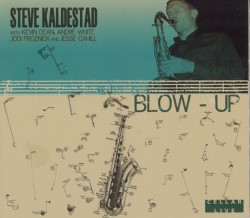 The West Coast scene remains active, despite an apparent divide between avant-gardists and hard boppers. Hear the latter with Steve Kaldestad on Blow-Up (Cellar Live CL053109 www.cellarlive.com). He’s recruited local pulse heavies Judi Proznick and Jesse Cahill and the Montreal pair of trumpeter Kevin Dean and pianist André White – all with McGill U connections. The leader penned four of seven long pieces that also include a tension-breaker in A Flower Is A Lonesome Thing. Kaldestad’s Shimmy!, an offspring of Honeysuckle Rose, shows strong influences from the 60s ‘Blue Note’ years and the music, live at Vancouver’s Cellar Club, breaks no new ground though it’s executed efficiently enough, the standout player without doubt Dean, who regularly delivers surprise in emotional solos. His rambunctious blues So Long Cerulean is the highlight of this no-frills set.
The West Coast scene remains active, despite an apparent divide between avant-gardists and hard boppers. Hear the latter with Steve Kaldestad on Blow-Up (Cellar Live CL053109 www.cellarlive.com). He’s recruited local pulse heavies Judi Proznick and Jesse Cahill and the Montreal pair of trumpeter Kevin Dean and pianist André White – all with McGill U connections. The leader penned four of seven long pieces that also include a tension-breaker in A Flower Is A Lonesome Thing. Kaldestad’s Shimmy!, an offspring of Honeysuckle Rose, shows strong influences from the 60s ‘Blue Note’ years and the music, live at Vancouver’s Cellar Club, breaks no new ground though it’s executed efficiently enough, the standout player without doubt Dean, who regularly delivers surprise in emotional solos. His rambunctious blues So Long Cerulean is the highlight of this no-frills set.
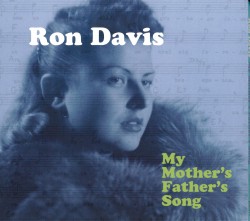 Prolific pianist Ron Davis has released his seventh trio album – My Mother’s Father’s Song (Minerva Road/Davinor Records 600977 www.rondavismusic.com). The title family reference recalls his grandfather’s 1930s Warsaw restaurant and is commemorated three times here – by trio, bass and piano – among the 13 tunes including four originals plus rarefied standards such as La Mer and My Shining Hour plus covers of hits by Stevie Wonder, James Taylor and Coldplay (the opening Viva la Vida ). Davis and ace colleagues bass Mike Downes and drummer Ted Warren skip through the genres yet ensure his compositions hold up well, like The Climb with strident chords and the boogified insistence of Sergio’s Shuffle. There are occasional surfeits of notes and too-heavy touches. Davis can’t remake La Mer but he tears up My Shining Hour and his own Tumba Ron Rumba with his percussive attack.
Prolific pianist Ron Davis has released his seventh trio album – My Mother’s Father’s Song (Minerva Road/Davinor Records 600977 www.rondavismusic.com). The title family reference recalls his grandfather’s 1930s Warsaw restaurant and is commemorated three times here – by trio, bass and piano – among the 13 tunes including four originals plus rarefied standards such as La Mer and My Shining Hour plus covers of hits by Stevie Wonder, James Taylor and Coldplay (the opening Viva la Vida ). Davis and ace colleagues bass Mike Downes and drummer Ted Warren skip through the genres yet ensure his compositions hold up well, like The Climb with strident chords and the boogified insistence of Sergio’s Shuffle. There are occasional surfeits of notes and too-heavy touches. Davis can’t remake La Mer but he tears up My Shining Hour and his own Tumba Ron Rumba with his percussive attack.
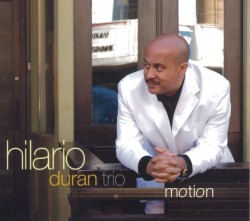 The tight threesome led by Hilario Duran is in sparkling mode (with one horrible exception) in the up-tempo, eight-tune collection comprising Motion (Alma ACD11102 www.almarecords.com). The boss, bassist Roberto Occhipinti and drummer Mark Kelso are totally in sync here, matching intricate lines with spontaneous playing of the highest order. Duran has musical chops to spare but though we enjoy occasional guests he should have stood firm against the vocal and, worse still, the syrupy strings on Havana City. Fortunately there’s compensation with the bouncy For Emiliano, the flying title track, the lively Tango Moreno and the speedy version of Timba en Trampa.
The tight threesome led by Hilario Duran is in sparkling mode (with one horrible exception) in the up-tempo, eight-tune collection comprising Motion (Alma ACD11102 www.almarecords.com). The boss, bassist Roberto Occhipinti and drummer Mark Kelso are totally in sync here, matching intricate lines with spontaneous playing of the highest order. Duran has musical chops to spare but though we enjoy occasional guests he should have stood firm against the vocal and, worse still, the syrupy strings on Havana City. Fortunately there’s compensation with the bouncy For Emiliano, the flying title track, the lively Tango Moreno and the speedy version of Timba en Trampa.
Characteristically adventurous, the 17th annual Guelph Jazz Festival (GJF) September 8 to 12 presents respected sound explorers in novel musical situations.
Probably the most notable GJF visitor this year is American trombonist/composer George Lewis. On September 11 he’s part of a trio with pianist Muhal Richard Abrams and multi-reedist Roscoe Mitchell on a double bill at the River Run Centre with the Sangam ensemble. Additionally throughout the festival, the MacDonald-Stewart Arts Centre hosts Ikons, which integrates computer software, created by Lewis, with Eric Metcalfe’s sculptures that reflect visitors’ movements. Sour Mash, with Lewis and sound designer Marina Rosenfeld on duelling laptops, is an example of Lewis’ software programming, while More News For Lulu exhibits his trombone skill with guitarist Bill Frisell and alto saxophonist John Zorn.
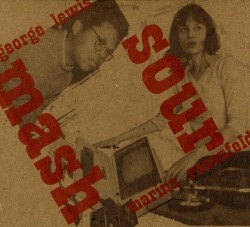 Similar to Ikons, Sour Mash (Innova 228 www.innova.mu) features looped textures which alter each time the composition is performed. On this version there’s no separation between the two creators’ input(s). Interspaced with episodes of sampled footfalls, mumbling voices and slide-whistle-like vibrations, the piece’s focus is on the sonic contrasts produced as both programs evolve simultaneously and languidly. Simmering and shimmying, buzzing sequences, blurry crackles and speedy whooshes share space with wind-chime-like pealing, watery bubbling and abrasive rustles. Defined with flanges and granulation, the processes evolve so that linkage is apparent, but with enough unexpected pauses, drones and beeps to keep the ever-shifting texture fascinating.
Similar to Ikons, Sour Mash (Innova 228 www.innova.mu) features looped textures which alter each time the composition is performed. On this version there’s no separation between the two creators’ input(s). Interspaced with episodes of sampled footfalls, mumbling voices and slide-whistle-like vibrations, the piece’s focus is on the sonic contrasts produced as both programs evolve simultaneously and languidly. Simmering and shimmying, buzzing sequences, blurry crackles and speedy whooshes share space with wind-chime-like pealing, watery bubbling and abrasive rustles. Defined with flanges and granulation, the processes evolve so that linkage is apparent, but with enough unexpected pauses, drones and beeps to keep the ever-shifting texture fascinating.
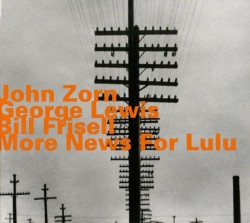 Equally fascinating is More News For Lulu (hatOLOGY 655 www.hathut.com). Here the trio provides an explicitly POMO take on 14 Hard Bop classics. Kenny Dorham’s Lotus Blossom for instance is reconstituted as Frisell’s gentle picking finally succumbs to the pressure from Zorn’s screeching altissimo runs and tongue slaps to introduce guitar neck-hand-tapping and amplifier buzzes. Meanwhile Lewis concentrates on a tremolo retelling of the head, which is eventually recapped by all three. Similarly Hank Mobley’s Peckin’ Time evolves in triple counterpoint with the saxophonist’s agitated lines mated with the trombonist’s moderato vibrations while the guitarist’s steady chording propels the narrative. Lewis’ strategy on other tunes such as John Patton’s Minor Swing consists of providing a huffing contrapuntal ostinato over which Zorn’s screeches thrust intensely. Braying upwards the trombonist eventually corners Frisell’s double-timed licks and the saxophonist’s split tones so that all three lines converge.
Equally fascinating is More News For Lulu (hatOLOGY 655 www.hathut.com). Here the trio provides an explicitly POMO take on 14 Hard Bop classics. Kenny Dorham’s Lotus Blossom for instance is reconstituted as Frisell’s gentle picking finally succumbs to the pressure from Zorn’s screeching altissimo runs and tongue slaps to introduce guitar neck-hand-tapping and amplifier buzzes. Meanwhile Lewis concentrates on a tremolo retelling of the head, which is eventually recapped by all three. Similarly Hank Mobley’s Peckin’ Time evolves in triple counterpoint with the saxophonist’s agitated lines mated with the trombonist’s moderato vibrations while the guitarist’s steady chording propels the narrative. Lewis’ strategy on other tunes such as John Patton’s Minor Swing consists of providing a huffing contrapuntal ostinato over which Zorn’s screeches thrust intensely. Braying upwards the trombonist eventually corners Frisell’s double-timed licks and the saxophonist’s split tones so that all three lines converge.
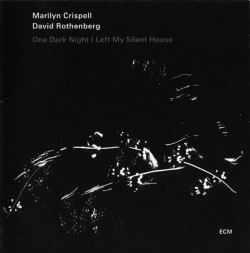 The pianism missing from the aforementioned CD is present on One Dark Night I Left My Silent House (ECM 2089 www.ecmrecords.com), which matches pianist Marilyn Crispell with clarinettist David Rothenberg. Crispell plays solo in Co-operators Hall September 11. Here she tries various sonic strategies to partner Rothenberg, a philosopher/naturalist interested in bird songs. While no tone is wholeheartedly onomatopoeic, aviary allusions abound. On Still Life with Woodpeckers for example, Crispell strokes the piano’s inner strings and hits the instrument’s backboard and bottom frame with percussive taps as the clarinettist flutter-tongues and chirps daintily. In contrast, on The Hawk and the Mouse, she sweeps across, plucks and strikes the strings as Rothenberg circles her cadences with growling obbligatos, snorts, honks and tongue slaps. Committed for the most part to parallel improvising, the two emphasize tonal connections. That’s why the moderato and andante Evocation references Impressionism, with the low-pitched reed line and the low-key octave patterning create what could be a neo-classical étude.
The pianism missing from the aforementioned CD is present on One Dark Night I Left My Silent House (ECM 2089 www.ecmrecords.com), which matches pianist Marilyn Crispell with clarinettist David Rothenberg. Crispell plays solo in Co-operators Hall September 11. Here she tries various sonic strategies to partner Rothenberg, a philosopher/naturalist interested in bird songs. While no tone is wholeheartedly onomatopoeic, aviary allusions abound. On Still Life with Woodpeckers for example, Crispell strokes the piano’s inner strings and hits the instrument’s backboard and bottom frame with percussive taps as the clarinettist flutter-tongues and chirps daintily. In contrast, on The Hawk and the Mouse, she sweeps across, plucks and strikes the strings as Rothenberg circles her cadences with growling obbligatos, snorts, honks and tongue slaps. Committed for the most part to parallel improvising, the two emphasize tonal connections. That’s why the moderato and andante Evocation references Impressionism, with the low-pitched reed line and the low-key octave patterning create what could be a neo-classical étude.
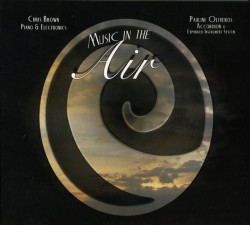 A so-called classical composer of the electro-acoustic variety, accordionist Pauline Oliveros plays twice at the GJF. On September 8, in Rozanski Hall, she and trio of Guelph musicians perform simultaneously via a telematic link with other improvisers in Bogotá, Colombia and Troy, N.Y. Then on September 11 at a yoga centre, Oliveros’ accordion timbres are transformed by using Expanded Instrument System (EIS) computer software. Examples of both her musical cooperation and programming skills show up on Music in the Air (Deep Listening DL 43-2010 www.deeplistening.org). Here EIS and signal processing mutate the sounds from Oliveros’ conch shell, percussion and accordion plus Chris Brown’s piano. Recorded in real-time without overdubs, tracks such as Trohosphere demonstrate how granular synthesis comments on and alters the piano’s speedy glissandi plus slippery accordion smears. Spread across the audio surface, processed signals contrapuntally change the piano’s dynamics as well as adjust accordion timbres to staccato and dissonant. When auxiliary bellow pumps enter the mix alongside a flat-line conch drone, Brown almost replicates a formal composition, so intent is he on maintaining harmonic patterns without raising the volume. With the modifications sometimes depicting variants of previously sampled timbres, sharp string slaps and key pumps provide live tonal additions. Eventually the dense interface is resolved as quivering voltage ramps slide downwards, introducing octave jumps and pressure from both keyboards.
A so-called classical composer of the electro-acoustic variety, accordionist Pauline Oliveros plays twice at the GJF. On September 8, in Rozanski Hall, she and trio of Guelph musicians perform simultaneously via a telematic link with other improvisers in Bogotá, Colombia and Troy, N.Y. Then on September 11 at a yoga centre, Oliveros’ accordion timbres are transformed by using Expanded Instrument System (EIS) computer software. Examples of both her musical cooperation and programming skills show up on Music in the Air (Deep Listening DL 43-2010 www.deeplistening.org). Here EIS and signal processing mutate the sounds from Oliveros’ conch shell, percussion and accordion plus Chris Brown’s piano. Recorded in real-time without overdubs, tracks such as Trohosphere demonstrate how granular synthesis comments on and alters the piano’s speedy glissandi plus slippery accordion smears. Spread across the audio surface, processed signals contrapuntally change the piano’s dynamics as well as adjust accordion timbres to staccato and dissonant. When auxiliary bellow pumps enter the mix alongside a flat-line conch drone, Brown almost replicates a formal composition, so intent is he on maintaining harmonic patterns without raising the volume. With the modifications sometimes depicting variants of previously sampled timbres, sharp string slaps and key pumps provide live tonal additions. Eventually the dense interface is resolved as quivering voltage ramps slide downwards, introducing octave jumps and pressure from both keyboards.
 Ricochet
Ricochet
Adrean Farrugia
Independent AF0610
There is a dedicated group of younger musicians in Toronto making their mark on the jazz scene. This CD features the music of one of the outstanding members of that coterie, Adrean Farrugia. He is in the company of some of Toronto's leading players performing a programme of mostly original compositions. The one exception being Blackberry Winter, a little heard song by Alec Wilder and Loonis McGlohon in a beautiful duo performance by Adrean and vocalist Sophia Perlman who is heard on two more of the album's eight tracks using her voice very effectively in wordless vocals.
Adrean's strengths as a composer are much in evidence, displaying a wide spectrum of musical traditions which he has absorbed and developed into his own creative personality. The broadness of his musical palette is impressive, ranging from Meadowlark which features the cello of Kiki Misumi to the driving layers of sound on Situmani which features the horns of Kevin Turcotte, Kelly Jefferson, Sandar Viswanathan and William Carn. Andrew Downing on bass and Anthony Michelli on drums add immensely to the success of this recording and are joined on a couple of compositions by tabla player Ravi Naimpally.
This is contemporary music of a very high standard and an excellent addition to the growing body of artistic work by Mr. Farrugia.
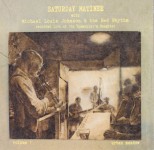 Saturday Matinee
Saturday Matinee
Michael Louis Johnson; The Red Rhythm
Urban Meadow um2010001 (www.urbanmeadow.ca)
Every Saturday afternoon in a tiny casual bar located at Dundas St. W. and Ossington in the Queen West area of Downtown Toronto Red Rhythm recreate jazz standards from the swing era and originals composed by leader Michael Louis Johnson. This recording captures the atmosphere of these sessions - nothing earth shattering and a strong emphasis on entertainment. Leader Johnson has an enthusiasm that largely compensates for what has to be described as a limited technique on trumpet. He brings the same zeal to his vocals which are featured on every track.
The solo department is without doubt in the hands of guitarist Roberto Rosenman and bassist Terry Wilkins with rhythm guitarist Patrick Gregory giving solid support. There are also guest appearances by Bob Stevenson on clarinet and Chris Bezant on guitar which add in no small measure to the quality of the recording.
Entertaining is the key word when describing Johnson's approach to his craft - The Hobo Knows being a prime example. The second half of the CD in particular demonstrates just why the group is so popular with its small but loyal following.